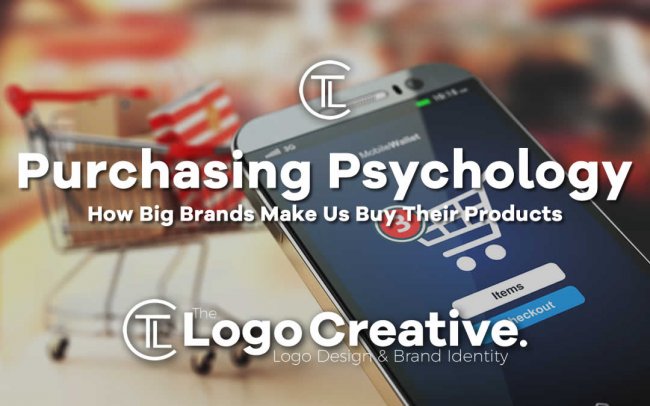When it comes to buying products, companies have gone beyond conventional marketing practices to understand how the minds of consumers work, to achieve very high sales. This trend leads to what is known as behavioral economics. In this article, we discuss Purchasing Psychology: How Big Brands Make Us Buy Their Products
Behavioral economics studies human behavior concerning wants, desires, and purchases. It helps companies understand why individuals go against a sound economic budget, go against the principle of the scale of preference, and buy a product that is not financially prudent.
Table of Contents
Behavioral Economics and Purchasing Psychology
The understanding of behavioral economics birthed purchasing psychology. The latter came as a way for the consumer to know why he or she always buy products that aren’t an immediate want; or why consumers pay a higher amount for a product that could sell for less.
In purchasing psychology, emotions and environmental factors influence what a consumer buys, and often the head goes with what the heart wants and says is okay. It means that although your brain understands that it’s more prudent to follow your financial plan, your heart tells you it’s okay to splurge.
Business owners understand the latter and leverage it to get consumers to buy their products. Big brands with a longevity status have used behavioral economics and purchasing psychology for years, which made them stand out in the marketplace.
Thus, with more and more companies leveraging behavioral economics, consumers have to understand how brands use it as a means to get them to buy their products. Getting an insight into purchasing psychology will help individuals protect their financial interests better, and have a defense against a persuasive power that makes significant economic gains from their subconscious.
How Big Brands Make Us Buy Their Products
Often, people would go for a product when the benefits outweigh the cost. For example, if a slimming tea is more expensive than being a member of a regular gym, people are more likely to go for the former, because, to them, it saves time, and they don’t need to do much to get results.
Brands leverage on this mental and physical laziness by consumers to get them to buy for benefit no matter the cost, and this brings us to our first point on how big brands make us buy their products:
Brands Capitalize On Our Mental Laziness
There’s a psychological law called “The Law of Least Effort;” it states that individuals shut down their thinking capacity once they have a ready-made solution in front of them. In terms of purchase, it means that when faced with the decision of getting a product, people are more likely to lean towards what the manufacturers present to them as a more practical choice.
Brands leverage mental laziness and the fact that people often do not want to make decisions for themselves to get them to buy their products. They equally lean on consumers’ desire to solve the problem of what they want quickly and present options that would require little or no mental effort.
Here, irrational thought wins over rational thought. Thus, rather than think about the long-term benefits of a product, consumers look at the here and now and focus on the product that solves their immediate problem.
Brands Capitalize on Our Desire to Have a Quick Fix
The “Quick fix” mentality has been in existence for years, and with technology making everything more accessible, people want more ways to get things done quicker, faster, and more efficiently. It’s the reason why people keep ordering fast food, and why many would instead use a home delivery service then go to the mall to shop for themselves.
The “Quick fix” mentality is equally an offshoot of mental laziness. Rather than think too hard, people would rather have a solution. The business world is about solution providers; thus, brands leverage this desire, and consumers buy their quick-fix products.
Take Amazon, for example, when it started, it’s aim was to create a marketplace where people buy books from the comfort of their home and have it delivered to them. However, they soon discovered that they could do more than that, as people wanted more things with convenience, and Amazon leveraged on it and remains one of the biggest online retail stores in the world today.
Brands Capitalize on Our Need to Have Assurances on Products
This is one of the most effective ways brands get consumers to buy their products. Business owners recognize that people might be lazy, people might need a quick fix, but nothing sells products more than assurances from fellow consumers.
Brands have studied and understood this, which is why they encourage consumers to post reviews. Mental laziness also plays a role here, as people read reviews to see other’s reactions and opinions of a product, rather than take time to research it themselves.
Reviews are more effective than star-ratings. Consumers will ignore a four or five-star rating to read a product review, which in turn influences their purchasing psychology. Thus, brands let consumers convince each other on a product, and wait to reap the profits.
Brands Capitalize on Our Fear of Losing
Although people love to win, the fear of losing is often more effective than the desire to win. In purchasing psychology, brands understand that people prefer not to lose money and offer products that send the message of “We are helping you save.”
A perfect example of this tactic is offering goods at discounted prices. Businesses sell more when people see a product with a discount or price slash. The excitement of getting products at a perceived cheaper rate, prevents people from asking, “What if the discount or slashed price is the original price?”
The question gets ignored for the promise of saving money, and consumers buy more products at discounted prices thinking they’ve saved money and prevented a loss. Also, people are open to suggestions. Thus, the idea of buying two products for less than the original price two would cost, sends the message of saving, and propels people to buy more than they budgeted for.
Kit Yarrow, a consumer behavior expert and professor emeritus at Golden Gate University, sums it up in these words, “People get more excited about the bargain than they do about what they are buying.” It is the “Great price syndrome,” and it is more advantageous to brands than consumers.
Brands Capitalize on Our Fear of Missing Out (FOMO)
Psychologists coined the term FOMO after realizing that the fear of missing out on things and trends is one of the most significant influencing factors in what people buy and consume. Brands that have studied purchasing psychology, capitalize on this fear to get people to buy things they don’t necessarily need or have the finance for.
The knowledge that a product is limited, and will be available for a limited amount of time, drives people to do all they can to get that product, even if the price is obscenely high. The fashion industry capitalizes on FOMO more than every other business in the world.
This is why fashion brands release limited edition bags, shoes, clothes, and people preorder before the product gets released. FOMO is the reason why people queue outside Apple offices before a new iPhone get released into the market, and why online retail sites post a limited number of availability of in-demand products.
FOMO lies in the need and desire to belong. It comes from one’s perception of one’s life and what owning a product could mean in terms of social standing. Brands have been using FOMO for a long time to push products and generate sales.
In the world today, where everything gets documented on social media and the desire to have the picture-perfect life is on the rise, brands are using the fear of losing out to get people to buy products more than ever.
Brands Capitalize on Our Basic Needs
Human wants are insatiable, but every human being has basic needs. Brands capitalize on these needs and the desire for fulfillment health-wise, financially, spiritually, and in our relationships.
They factor in on what’s essential to people and manufacture products that meet those needs. Everyone wants a better life than what they have, so if a product has by a fraction, qualities that can make it happen, then it’s what consumers will buy.
Purchasing Psychology
Purchasing psychology has worked for years, and brands will continue to capitalize on them to influence our choice of products. While there’s nothing wrong with it, it’s left to us to decide how far we will let it control our options.
We hope you have found this article, about Purchasing Psychology: How Big Brands Make Us Buy Their Products interesting be sure to leave any comments below.
Useful Links & Great Deals
- The Equipment We Use & Recommend
- Quality Design Bundles
- Get 2 Months free Skillshare
- Get an Exclusive 20% off Logo Package Express
- Learn Logo Design Online
 Author Bio
Author Bio
Cheryl Hearts is a talented journalist from Boston, Massachusetts. From an early age, she was into writing and decided to make it her career. Obtaining a Master’s Degree in Journalism has boosted her desire to grow as a journalist and has contributed to major media publications. Cheryl also runs her blog CherylHearts.com where she shares her opinion on topics trending in modern society.


